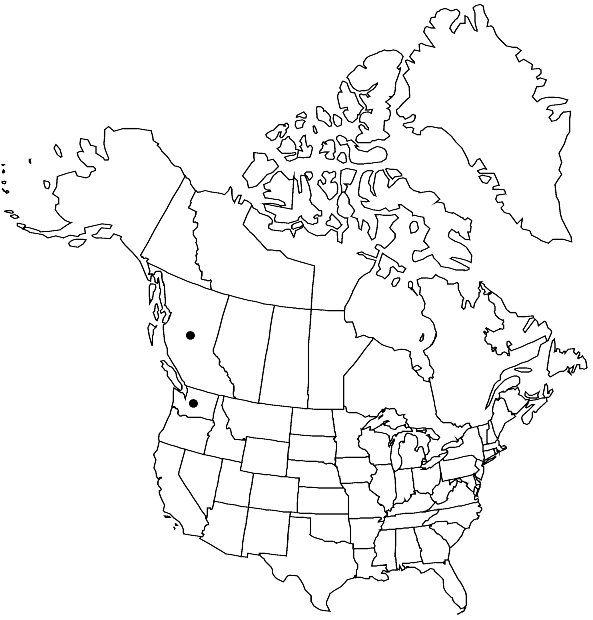Difference between revisions of "Niphotrichum pygmaeum"
in R. Ochyra et al., Cens. Cat. Polish Mosses, 139. 2003,.
FNA>Volume Importer |
imported>Volume Importer |
||
| Line 50: | Line 50: | ||
|publication year= | |publication year= | ||
|special status= | |special status= | ||
| − | |source xml=https:// | + | |source xml=https://bibilujan@bitbucket.org/aafc-mbb/fna-data-curation.git/src/bb6b7e3a7de7d3b7888a1ad48c7fd8f5c722d8d6/coarse_grained_fna_xml/V27/V27_399.xml |
|subfamily=Grimmiaceae subfam. Racomitrioideae | |subfamily=Grimmiaceae subfam. Racomitrioideae | ||
|genus=Niphotrichum | |genus=Niphotrichum | ||
Revision as of 22:32, 27 May 2020
Plants small and fairly slender, olivaceous to greenish yellow. Stems 0.5–1.8(–2.5) cm, ascending, subpinnately or occasionally pinnately branched to almost unbranched, usually radiculose throughout. Leaves imbricate, not or slightly altered when dry, erect-spreading to weakly recurved when moist, ovate-lanceolate, 1.5–1.8 × 0.5–0.6 mm; margins recurved throughout or often not or only weakly recurved distally the base; piliferous or rarely muticous, awn erect-flexuose, fairly long on the uppermost leaves, subulate, non-decurrent, slightly denticulate, epapillose throughout or faintly papillose in the proximal part; costa percurrent, sharply delimited from the laminal cells, superficial and not situated in a groove; 35–55 µm wide at the base; basal laminal cells rectangular, 15–45 × 4–6 µm, with moderately thickened, porose and nodulose longitudinal walls, epapillose in 2–3 cell rows at the insertion; alar cells mostly subquadrate to short-rectangular, pellucid in 3–5(–6) rows, forming a small, not or weakly convex group; supra-alar cells quadrate to subquadrate, thin- and straight-walled, forming a marginal border consisting of up to 15 cells; medial and distal laminal cells short-rectangular to subquadrate, 6–25 × 6–10 µm, opaque due to relatively dense and coarse papillae. Sporophytes unknown.
Habitat: Dry and open acidic ground in alpine heaths
Elevation: moderate to high elevations (1900-2500 m)
Discussion
Of conservation concern.
Niphotrichum pygmaeum is known only from a few collections in British Columbia and Washington. It is the rarest and smallest species of the genus, readily known by its awn, which is epapillose or only slightly papillose at the base, percurrent costa, which is not situated in a channel, small and flat auricles, and opaque distal laminal cells that are yellow and fairly densely and conspicuously papillose.
Selected References
None.
